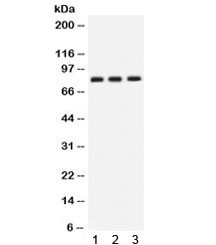Cookie preferences
This website uses cookies, which are necessary for the technical operation of the website and are always set. Other cookies, which increase the comfort when using this website, are used for direct advertising or to facilitate interaction with other websites and social networks, are only set with your consent.
Configuration
Technically required
These cookies are necessary for the basic functions of the shop.
"Allow all cookies" cookie
"Decline all cookies" cookie
CSRF token
Cookie preferences
Currency change
Customer-specific caching
FACT-Finder tracking
Individual prices
Selected shop
Session
Comfort functions
These cookies are used to make the shopping experience even more appealing, for example for the recognition of the visitor.
Note
Show the facebook fanpage in the right blod sidebar
Statistics & Tracking
Affiliate program
Conversion and usertracking via Google Tag Manager
Track device being used

| Item number | Size | Datasheet | Manual | SDS | Delivery time | Quantity | Price |
|---|---|---|---|---|---|---|---|
| NSJ-R31938 | 100 µg | - | - |
3 - 10 business days* |
755.00€
|
If you have any questions, please use our Contact Form.
You can also order by e-mail: info@biomol.com
Larger quantity required? Request bulk
You can also order by e-mail: info@biomol.com
Larger quantity required? Request bulk
0.5mg/ml if reconstituted with 0.2ml sterile DI water. Clusterin (apolipoprotein J) is a 75 - 80... more
Product information "Anti-Clusterin"
0.5mg/ml if reconstituted with 0.2ml sterile DI water. Clusterin (apolipoprotein J) is a 75 - 80 kDa disulfide-linked heterodimeric protein associated with the clearance of cellular debris and apoptosis. In humans, clusterin is encoded by the CLU gene. This protein has several synonyms: dimeric acidic glycoprotein (DAG protein), testosterone repressed prostate message-2 (TRPM-2), sulfated glycoprotein-2 (SGP-2) and complement lysis inhibitor (CLI). Clusterin was mapped to mouse chromosome 14. Clusterin is a ubiquitously expressed molecule thought to influence a variety of processes including cell death. In the brain, it accumulates in dying neurons following seizures and hypoxic-ischemic (H-I) injury. clusterin may be a new therapeutic target to modulate non-caspase-dependent neuronal death following acute brain injury. Protein function: Isoform 1 functions as extracellular chaperone that prevents aggregation of nonnative proteins. Prevents stress- induced aggregation of blood plasma proteins. Inhibits formation of amyloid fibrils by APP, APOC2, B2M, CALCA, CSN3, SNCA and aggregation-prone LYZ variants (in vitro). Does not require ATP. Maintains partially unfolded proteins in a state appropriate for subsequent refolding by other chaperones, such as HSPA8/HSC70. Does not refold proteins by itself. Binding to cell surface receptors triggers internalization of the chaperone-client complex and subsequent lysosomal or proteasomal degradation. Secreted isoform 1 protects cells against apoptosis and against cytolysis by complement. Intracellular isoforms interact with ubiquitin and SCF (SKP1-CUL1-F-box protein) E3 ubiquitin-protein ligase complexes and promote the ubiquitination and subsequent proteasomal degradation of target proteins. Promotes proteasomal degradation of COMMD1 and IKBKB. Modulates NF-kappa-B transcriptional activity. Nuclear isoforms promote apoptosis. Mitochondrial isoforms suppress BAX-dependent release of cytochrome c into the cytoplasm and inhibit apoptosis. Plays a role in the regulation of cell proliferation. [The UniProt Consortium]
| Keywords: | Anti-CLU, Anti-APOJ, Anti-AAG4, Clusterin Antibody |
| Supplier: | NSJ Bioreagents |
| Supplier-Nr: | R31938 |
Properties
| Application: | WB, IHC (paraffin), ELISA |
| Antibody Type: | Polyclonal |
| Conjugate: | No |
| Host: | Rabbit |
| Species reactivity: | human |
| Immunogen: | Amino acids 228-449 of human Clusterin/Apolipoprotein J were used as the immunogen for the CLU antibody. |
| Format: | Purified |
Database Information
| KEGG ID : | K17252 | Matching products |
| UniProt ID : | P10909 | Matching products |
| Gene ID | GeneID 1191 | Matching products |
Handling & Safety
| Storage: | -20°C |
| Shipping: | -20°C (International: -20°C) |
Caution
Our products are for laboratory research use only: Not for administration to humans!
Our products are for laboratory research use only: Not for administration to humans!
Information about the product reference will follow.
more
You will get a certificate here
Viewed






